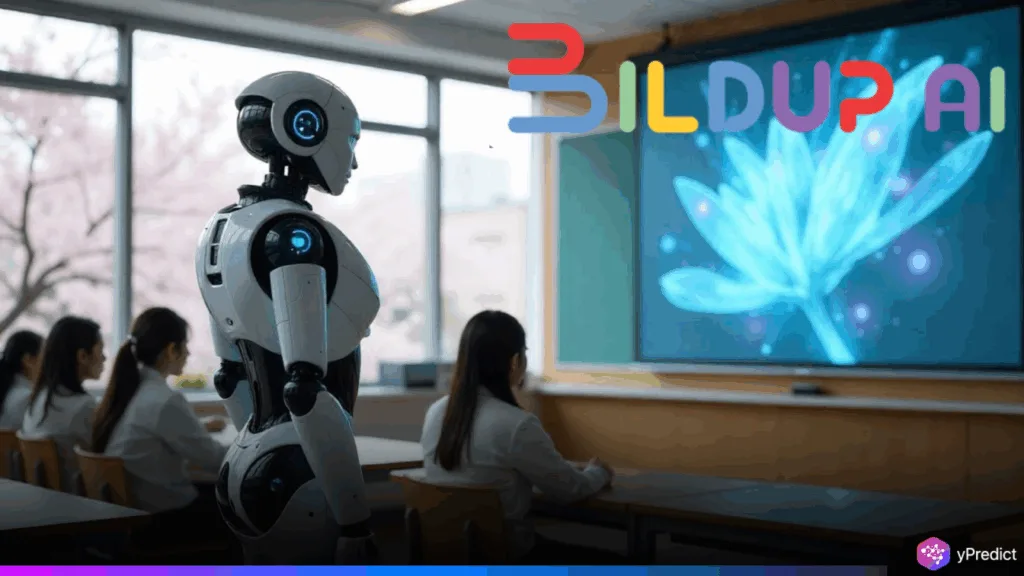
Nigerian edtech firm Bildup AI has launched a bold new initiative, “AI in Every Classroom,” to bring artificial intelligence tools into schools across Nigeria. Backed by an NGN500 million investment over the next year, the program targets personalized learning and equity in education. Starting with pilot schools, the initiative aims to support teachers with AI-driven platforms that adapt content to individual learning styles, track student progress, and align with national curriculum standards. Bildup AI says the move reflects its dual focus on innovation and inclusion, particularly for underserved communities. National expansion is planned in phases throughout the coming months.
Focus on Personalization and Equity in Learning
The “AI in Every Classroom” project centers on personal, student-centered education. To fit each student’s pace and skill, Bildup AI’s solutions aim to examine learning patterns and customize teaching. This strategy assists teachers in providing more efficient instruction and bridges any learning gaps. Automated insights, performance analysis, and curriculum-aligned material that adjusts in real time will greatly help teachers. The program gives underprivileged areas particular focus since limited resources often prevent educational achievement there. Bildup Artificial Intelligence wants to level the playing field for students who have historically lacked access to excellent tools by means of smart platforms capable of operating even in low-bandwidth environments.
To guarantee the project is integrated responsibly and smoothly, buildup AI ecosystem is closely collaborating with regional educational authorities and NGOs. Also given top importance is teacher training to ensure certain the innovative AI tools are properly used. The company states that this action assists Nigeria’s National Digital Economy Policy and Strategy. Which gives important transforming areas such as education and artificial intelligence. With instructors noting increased engagement and better pupil results, early comments from pilot schools have been favorable. With fresh schools joining the program during the academic year, development will proceed in phases.
Industry Reactions and National Impact
Many people in Nigeria’s tech and education sectors are interested in the news. It is frequently considered a major step in Canada’s move toward digital progress. Some in the industry say the initiative is useful, mainly because it seamlessly integrates modern technology into education. Education supporters say the initiative supports the main policies of the government, such as Universal Basic Education and the National Artificial Intelligence Strategy that the government is now developing. With AI tools included in the classroom, Bildup AI is ensuring students are ready for future technology and improving present learning.
Critics have raised questions around data privacy and implementation consistency across diverse school settings. In response, Bildup AI says it’s developing robust governance frameworks, including data protection protocols and ongoing impact monitoring. The program could also serve as a model for other African countries exploring edtech-driven reforms. Bildup AI’s emphasis on localized solutions, teacher empowerment, and curriculum compatibility may help set new standards for what tech integration can achieve in resource-constrained contexts. As the program grows, observers will watch closely to see how effectively the AI ecosystem can balance personalization, access, and measurable improvement in Nigerian classrooms , especially in rural or underserved areas.
Looking Ahead: A New Era for Nigerian Education
Bildup AI’s NGN500 million investment marks a turning point for Nigeria’s education sector. The “AI in Every Classroom” initiative is more than a tech rollout. It’s a statement on the future of learning in the country. With pilot programs already underway and national expansion on the horizon, the company is betting big on AI’s ability to transform how Nigerian students learn and thrive. If successful, the initiative could redefine classroom dynamics, uplift marginalized learners, and set a precedent for tech-powered education across Africa. For now, the focus is on impact, equipping schools, and empowering teachers. Building a smarter future, one classroom at a time.






